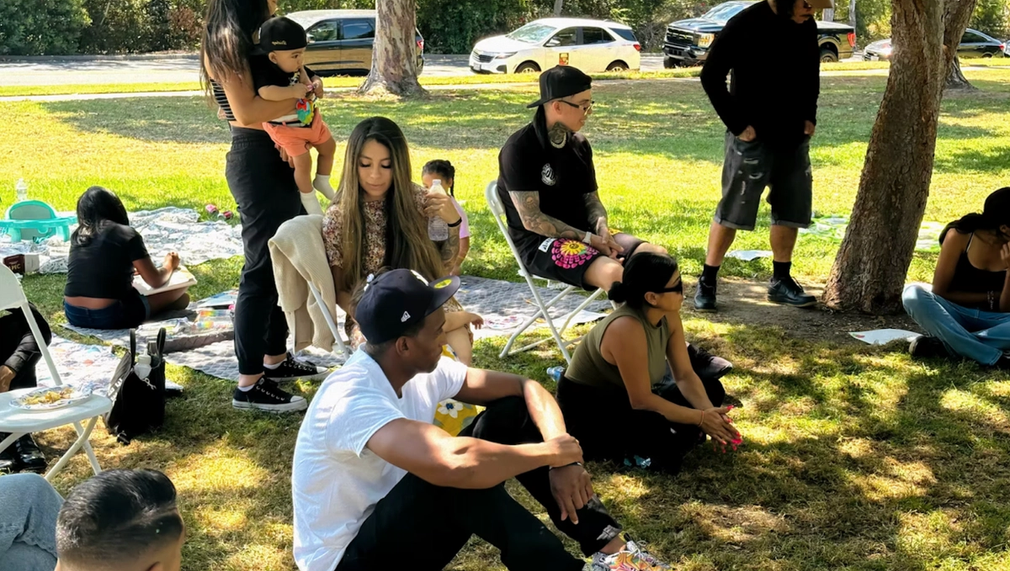Empowering Second Chances Reentry Program
Our reentry program supports adults returning from incarceration by prioritizing family reunification, emotional healing, and successful reintegration into the community to foster community safety. The program is rooted in the belief that healing families is key to healing communities. We help individuals rebuild relationships, stabilize their lives, and break the cycle of recidivism.

What is the primary issue area that your application will impact?
Community safety
In which areas of Los Angeles will you be directly working?
County of Los Angeles (select only if your project has a countywide benefit)
In what stage of innovation is this project, program, or initiative?
Pilot or new project, program, or initiative (testing or implementing a new idea)
What is your understanding of the issue that you are seeking to address?
The need for reentry services for individuals returning from California state prisons to Los Angeles County is critical, particularly in light of CDCR's high recidivism rate of 41.9 percent. Almost half of those released from California state prisons are re-incarcerated within three years, often due to insufficient support in areas like housing, employment, education, mental health, and relationships. Without these essential supports, people are often left to navigate reentry alone which increases their vulnerability to reoffending. This problem disproportionately affects low-income communities of color, where systemic barriers compound the challenges of returning home after incarceration. Addressing this issue now is critical. As conversations about justice reform continue statewide, we have a window of opportunity to reshape reentry as a pathway to healing and success. By investing in community-based, trauma-informed support systems, we can disrupt the cycle of recidivism.
Describe the project, program, or initiative this grant will support to address the issue.
Our reentry services will provide comprehensive support focusing on multiple aspects of reintegration: family reunification, personal development, skill-building, emotional well-being, and stability. Our program focuses on family reunification and healing, addressing the deep emotional and relational wounds caused by incarceration.
Our staff–individuals who have firsthand experience with incarceration and reentry–will guide participants through reentry by providing peer support, and assisting them in acquiring necessary IDs, right-to-work documents, and public benefits. They will assist participants in obtaining free Metro LIFE tap cards or a drivers’ license to ensure transportation is not a barrier to their reintegration process. They will also facilitate thrice-weekly rotating group sessions:
Emotional Intelligence
AA (Alcoholics Anonymous)
Cognitive Behavioral Therapy (CBT)
Healing/Reentry Circle
Family Reunification Circle
Financial Literacy
With support from LA2050, we will also host culturally relevant family meals for participants seeking support with family reunification, and have an emergency fund for immediate critical needs such as medical bills.
Describe how Los Angeles County will be different if your work is successful.
As a result of our work, Los Angeles County will be home to stronger, more resilient families and communities where individuals returning from prison are not only welcomed back, but are also given the tools to rebuild their lives with dignity and purpose. We envision a county where families are no longer fractured by the justice system, but are instead supported through a restorative process that prioritizes connection, accountability, and long-term stability.
Success means fewer people returning to prison, more families staying together, and an increase in formerly incarcerated individuals contributing positively to their communities. By creating a reentry model that centers healing and family restoration, we aim to disrupt the cycles that often lead to re-incarceration and community disinvestment.
Long term, we plan to expand our program across Los Angeles County, building partnerships with local organizations and government agencies to scale our holistic, healing-centered approach.
Approximately how many people will be impacted by this project, program, or initiative?
Direct Impact: 30
Indirect Impact: 120